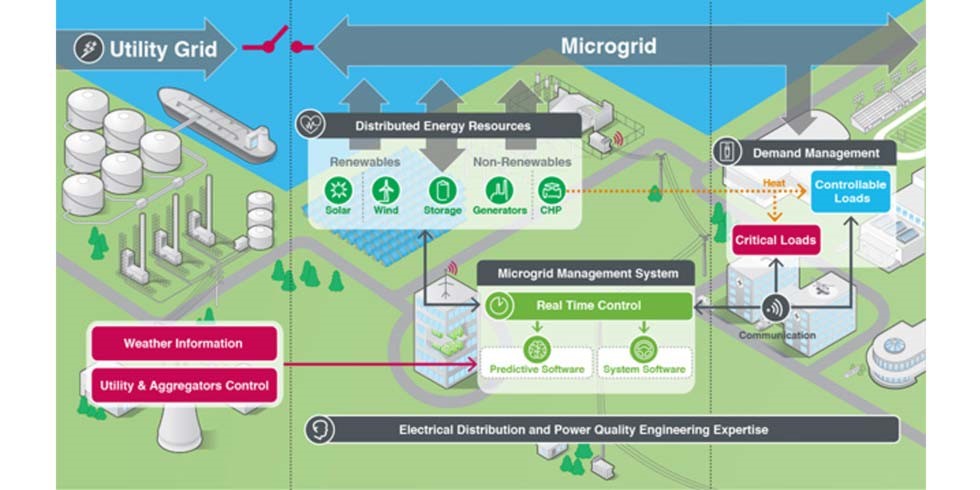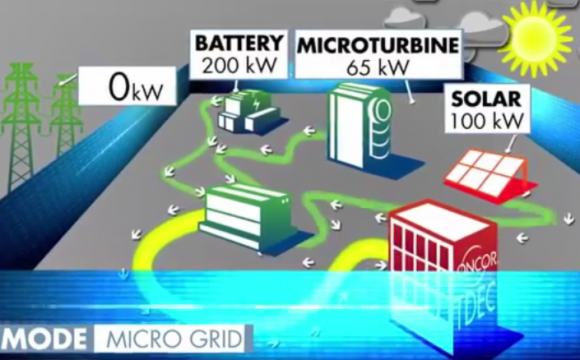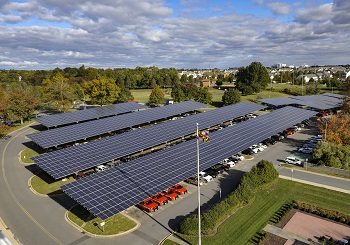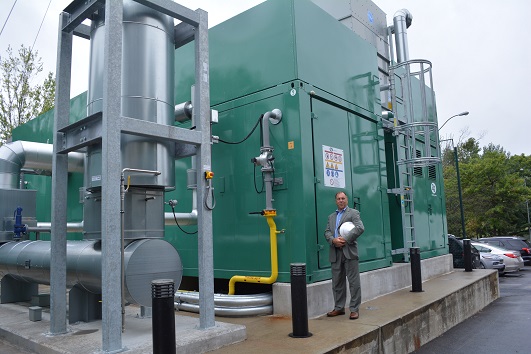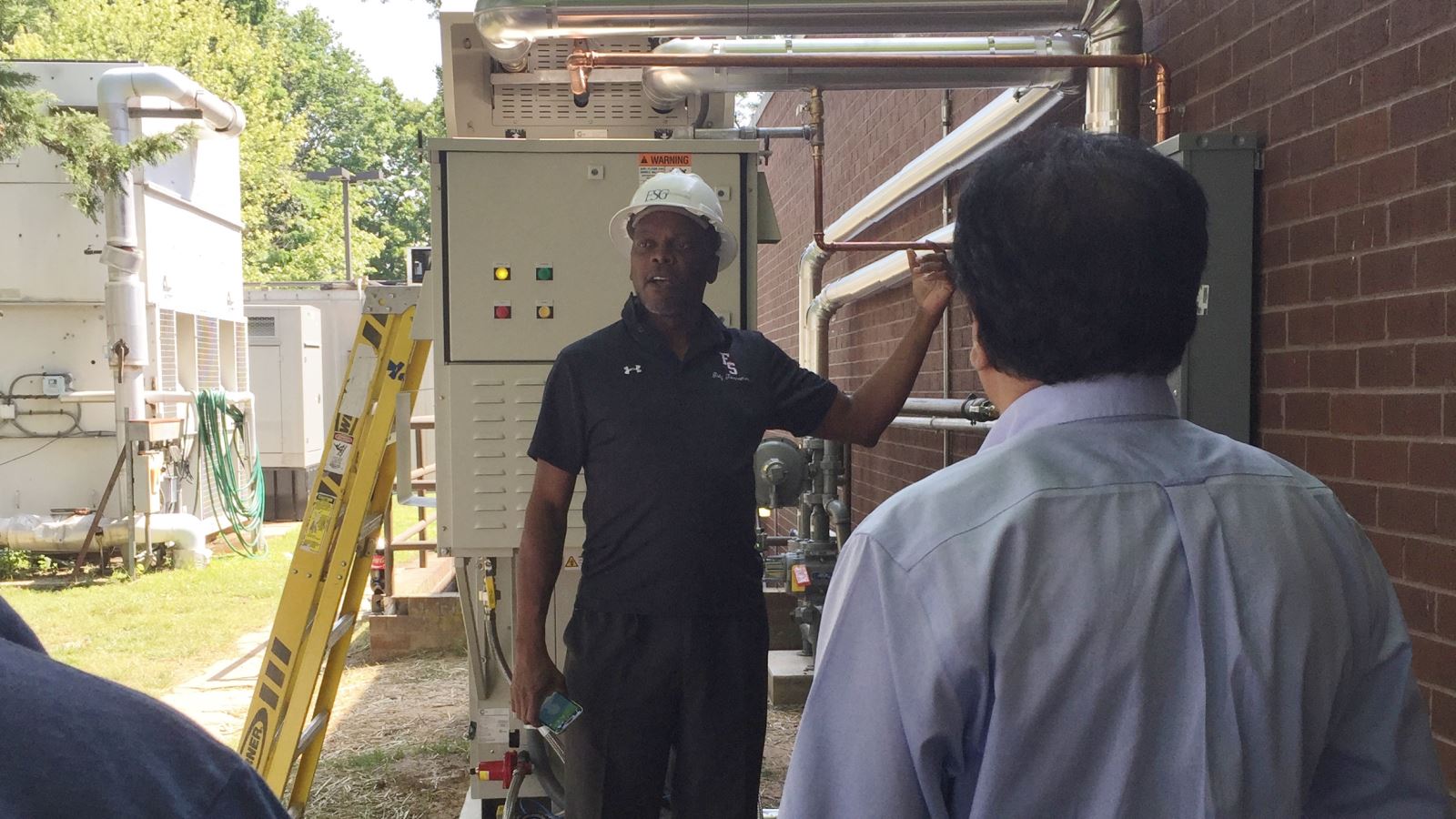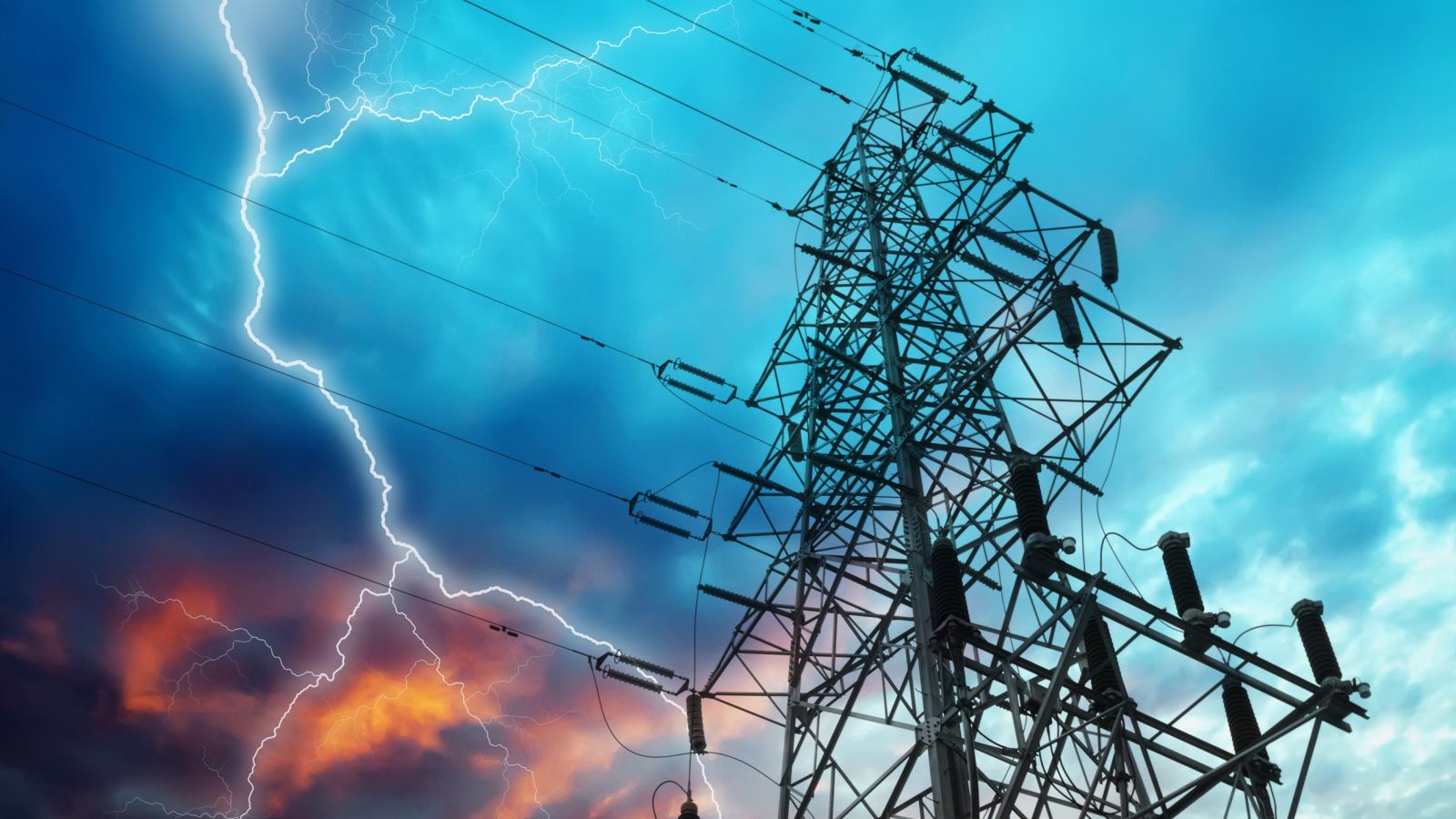Category Name
Resiliency
Media heading
Montgomery County is improving its ability to anticipate and quickly adapt to extreme weather, economic downturns, and natural and man-made disasters. The County is planning and developing programs to improve availability of critical services and amenities such as public transit, roads, power grid, police, and firefighting operations during these kinds of events.
- Goal:
- Ensure police, fire, and other critical operations run independently of the electrical grid.
- Progress:
- Currently piloting energy saving on-site power generation at one County facility.
About Resiliency
Resiliency is the County’s ability to quickly and efficiently maintain function during, respond to, and recover from storms and natural disasters. Reducing energy use and increasing on-site power generation at critical facilities ensures that Montgomery County can keep residents safe and provide needed services in spite of power outages. Resilient County facilities also relieve pressure on the power grid, reducing blackouts and brownouts during times of peak electricity use. We are enhancing resilience by
- installing energy saving on-site power generation using combined heat and power technology,
- building the resiliency of the local power grid by generating solar energy on County facilities, and
- installing microgrids at key facilities which can run uninterrupted during outages.
combined heat and power technology, we are building the resiliency of the local power grid by generating solar energy on County facilities, installing microgrids at key facilities which can run uninterrupted during outages, and making our buildings more energy efficient.
Another important aspect of resiliency is the County’s ability to clear roads and restore services during extreme weather events. Winter Storm Jonas, a major blizzard that produced more than three feet of snow in Montgomery County in one weekend in January 2016, demonstrated the County’s resiliency. Within two days of the end of the storm, 86% of County facilities were ready to resume operations. All facilities were accessible and ready to resume operations by the third day after the storm.
Microgrids
Media heading
Montgomery County entered into an innovative public-private partnership to install microgrids at two crucial facilities: Public Safety Headquarters and Montgomery County Correctional Facility. Microgrids are on-site clean power generation systems that allow critical operations to run independently of the power grid. Combining technologies such as solar panels, combined heat and power generation systems, batteries, and advanced controllers with built in cyber-security, microgrids allow facilities to run uninterrupted during storms and other major power outages. Through the public-private partnership, the microgrids have been installed without any upfront costs to the County and will ensure that the County can continue to provide critical services to the community during major external events. More...
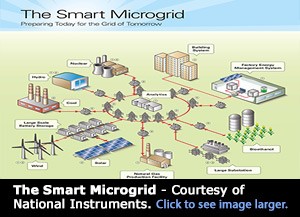
Reduce Paper Use
Porous pavement allows rain to pass through it and soak into the ground. This replenishes the water table, prevents flooding, and filters pollutants before rain and snow melt reaches our streams and rivers. You can see porous pavement in action at the White Oak Recreation Center.
Montgomery County has entered into an innovative public-private partnership to install microgrids at Public Safety Headquarters and Montgomery County Correctional Facility. Microgrids are on-site clean power generation systems that allow critical operations to run independently of the power grid. Microgrids combine technologies such as solar panels, combined heat and power microturbines, batteries, and advanced controllers that include built in cyber-security. Microgrids are resilient because they allow facilities to generate their own power and run uninterrupted during storms and other major power outages. Through the public-private partnership, the microgrids will be installed without any upfront costs to the County. The on-site power generation at these two sites are anticipated to reduce greenhouse gas emissions as much as taking 765 cars off the road or planting 94,000 trees. They also will ensure that the County can continue to provide critical services to the community during major storms and other external events.
Solar
Media heading
Solar power bolsters resiliency by generating power on-site and relieving pressure from the power grid during times of high energy use, such as hot summer days. Montgomery County has installed 7.6 megawatts of solar on County-owned facilities. These distributed solar energy systems have the capacity to generate 10 million kilowatt hours of electricity each year. That is enough electricity to power more than 800 homes, reducing greenhouse gas emissions by 7,400 metric tons. The environmental benefit is equivalent to planting 192,000 trees. In addition, solar energy generation is expected to save the County $10 million in electric bills over 20 years. More...
Combined Heat & Power
Media heading
Combined Heat and Power (CHP), also known as co-generation, saves energy by using waste heat from on-site power generation to heat buildings. Most power generators allow the heat created to escape into the atmosphere, while CHP system captures that heat and uses it to provide heating for the building. The County’s first combined heat and power system started providing power and heat to the County’s Pre-Release Center. This facility can use all of the electricity and heat on-site as it is generated, having a constant electrical and hot water need. The CHP system is up to twice as efficient as traditional separate electrical and heating systems found in buildings.
Combined Heat and Power systems have also been installed at Public Safety Headquarters and Montgomery County Correctional Facility as part of the microgrid projects. The County uses innovative financing to maximize cost savings from CHP systems. Rather than buying the system outright, the County leases it from a third party contractor who owns, operates, and maintains it. The County then purchases the energy from that third party at a fixed cost, saving taxpayer dollars.
Media heading
Montgomery County is one of only two dozen partners in the U.S. Department of Energy’s new Better Buildings Accelerator. As a partner in the Combined Heat and Power for Resiliency Accelerator, the County is an early leader among local governments nationwide in the use of sustainable technologies that enhance the resiliency of the County’s facilities and services, while saving energy and money.
Media heading
Montgomery County is one of only two dozen partners in the U.S. Department of Energy’s new Better Buildings Accelerator. As a partner in the Combined Heat and Power for Resiliency Accelerator, the County is an early leader among local governments nationwide in the use of environmentally-friendly technologies that ultimately will enable the County to provide uninterrupted public safety services during major storms and power outages while saving energy and money. More...


